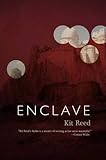 I wonder what attracts an editor/publishing company to a book. What exactly is the quality that this particular manuscript has that makes someone say, "Yes, this will be a great book. We can sell hundreds (thousands?) of copies."
I wonder what attracts an editor/publishing company to a book. What exactly is the quality that this particular manuscript has that makes someone say, "Yes, this will be a great book. We can sell hundreds (thousands?) of copies." In particular, what was it about Keefer's story that attracted her agent? I found myself more curious about this book than I am about most, which might have something to do with where I am in my life, but I think it also has to do with the plot of The Ladies' Lending Library.
I picked up this story cold at the public library. I was intrigued by the cover art and the blurb on the back. Sadly, the blurb and the title did not accurately portray the story between the covers. That always frustrates me. Yet another of my lingering questions:
Who writes the blurbs? And how hard is it to describe the story that has actually been written?
The blurb suggests that the book will focus on the summer beach book group of a collection of women in 1968. In fact the book group is only very tangential to the story.
Despite my frustration with the difference in the proposed plot and the actual plot, there were things I really did appreciate; but I would have preferred knowing ahead of time what I was going to read.
In fact, the story revolves around the difficulties of life for Ukrainian ex-pats and their children who are trying to grow up all-American in the end of the innocent 1960s. The parents all suffer from memories of their life pre-United States that color their relationships with their children, their spouses, and their friends. The story is told from a large variety of perspectives which I enjoyed; getting inside the heads of the kids, the husbands, and the wives really created a believable world in which these people functioned.
Getting back to my first point: I think this book had incredible promise. As an editor, I could see picking up the excerpt and wanting to read more. In particular I found Keefer's descriptive voice engaging and extremely vivid. I only wish I knew how to incorporate her poetic flair without sounding phony.
However (and this is a big however for me), the plot really dragged. The lending library was a terribly small part of the plot and the story never picked up any pace. The laid-back pacing was logical, I suppose, given the plot of a lazy summer at the beach. But I did not find myself wanting to pick the book up and keep reading. And the story wasn't lacking for drama, it just wasn't written in a way to engage the reader. So, how do publishers encourage an author to rework the story in a way to give in oomph? (And is it necessary?)To push the book from being good to being really excellent?




